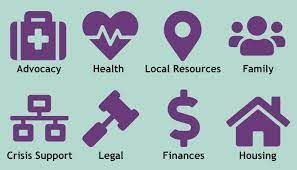Geriatric Healthcare

What is Geriatric healthcare and how do you know if you need one?
Navigating the healthcare system has become difficult for everyone – it is especially difficult for our seniors and their families. As people age, they tend to have more and more healthcare issues. As a result, most elderly people see numerous doctors, have a calendar full of medical appointments and take numerous prescriptions. It is another difficult task of a caregiver, but whether it is you or if you hire someone, it is critical that your beloved elder has a healthcare advocate. You should keep an ongoing record of their medical history, symptoms, treatments, and instructions.
Just as some families hire legal or financial advisors, they can now hire (geriatric) healthcare advisors.
David Bellotti, Geriatric Care Manager and Professional Guardian of American Geriatric Care Group, provides the following description of what services they provide:
A Geriatric Care Manager is a health and human services specialist who acts as a guide and advocate for families who are caring for older relatives or disabled adults. The Geriatric Care Manager is educated and experienced in any of several fields related to Geriatric Care Management including, but not limited to nursing, gerontology, social work, or psychology, with a specialized focus on issues related to aging and elder care.
The Geriatric Care Manager assists clients in attaining their maximum functional potential. The individual’s independence is encouraged, while safety and security concerns are also addressed. Geriatric Care Managers are able to address a broad range of issues related to the well-being of their clients. They also have extensive knowledge about the costs, quality, and availability of resources in their communities.
Geriatric Care Managers become the "coach" and families or clients the "team captain." The best Geriatric Care Management Professionals are members of the Aging Life Care Association (ALCA) and differ from Patient Advocates, Senior Advisors, Senior Navigators, and Elder Advocates. ALCA members must meet stringent education, experience, and certification requirements of the organization, and all members are required to adhere to a strict Code of Ethics and Standards of Practice.
How do you know that you need a Geriatric Care Manager? If you fall into any of the categories below, it may be time to find a Geriatric Care Manager.
When caregiving for an aging family member becomes overwhelming, it may be time to contact a Geriatric Care Manager.
You may need a Geriatric Care Manager if:
The person you are caring for has limited or no family support.
Your family has just become involved with helping the individual and needs direction about available services.
The person you are caring for has multiple medical or psychological issues.
The person you are caring for is unable to live safely in his/her current environment.
Your family has limited time and/or expertise in dealing with your loved ones’ chronic care needs.
Your family is at odds regarding care decisions.
The person you are caring for is not pleased with current care providers and requires advocacy.
The person you are caring for is confused about his/her own financial and/or legal situation.
Your family needs education and/or direction in dealing with behaviors associated with dementia.
Geriatric Care Management services are offered in a variety of settings—are personalized compassionate and can serve the needs of their clients by providing:
Accessibility – care is typically available 24 hours a day, 7 days a week.
Continuity of care – communications are coordinated between family members, doctors and other professionals, and service providers.
Cost containment – inappropriate placements, duplication of services, and unnecessary hospitalizations are avoided.
Quality control – Geriatric Care Management services follow ALCA’s Standards of Practice and Code of Ethics.
If you think you need a Geriatric Health Care Manager, please give us a call at 386-847-2322, we are here to help you navigate the stages of aging.



